
NCR’s flight department has evolved to meet changing company travel needs.
June 1, 2016
After a host of changes – including relocating to a new airport and acquiring a new aircraft type – NCR continues to fly safely, as it has done for over 60 years.
“People ask how old our flight department is,” said Jeff Michael, director of aviation for NCR, “but when you consider we were associated with the Wright brothers from the very beginning, it’s hard to pinpoint how long NCR has been involved with aviation.”
NCR was founded as National Cash Register in 1884 by John H. Patterson (for which Dayton, OH’s Wright-Patterson Air Force Base is co-named, along with Wilbur Wright). Two of NCR’s first executives, Edward Deeds and Charles Kettering, were friends and advisers to the Wright brothers.
Kettering invented the first electric cash register, NCR’s flagship product for 50 years. Today, NCR processes more than 550 million transactions a day, supplying the technology for point-ofsale terminals, ATM machines, travel kiosks and mobile boarding passes around the globe.
With operations in 130 countries, NCR’s leadership team logs plenty of airline miles, but for some trips, “it’s easier and more affordable” to dispatch the company’s Gulfstream G550 or Bombardier Challenger 300, says Andrea Ledford, senior vice president of corporate services and chief human resources officer.
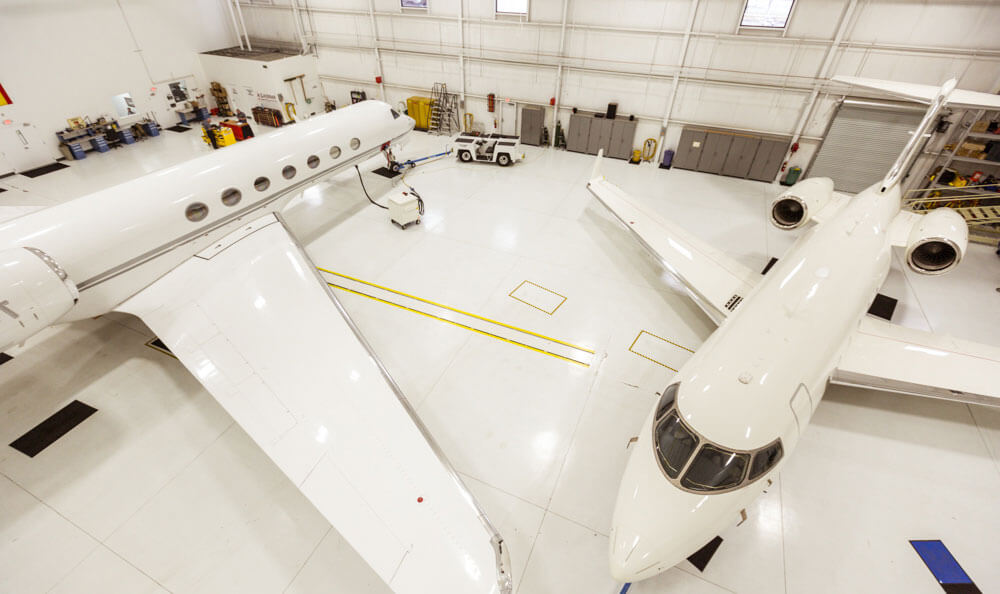
“On international flights when we’re making a lot of stops or on a short time frame, the aircraft help us respond to business opportunities,” said Ledford. “We can just get on the plane and go.”
Shifting to a Global Mission
NCR may not be able to pinpoint its first use of business aviation (Michael has a picture of Deeds with a Ford Trimotor, taken in the 1930s) but the company officially opened its flight department in 1954, with two Douglas DC-3s.
With an average pilot tenure of 16 years, plus maintenance chief Frank Krafka’s 26 years, the flight department personnel have strong ties to the company, each other and Dayton – even though the flight department is no longer based in Dayton. In 2009, NCR moved its corporate headquarters to Duluth, GA, near Atlanta. The flight department followed, to nearby Cobb County International Airport in 2013.
Michael said, “In a one-year period, we relocated our department, built a new hangar, acquired an airplane and hired three people – the four biggest things that can happen in business aviation.”
Around the time NCR moved its headquarters, the executive team started doing more international travel. The pilots found themselves flying the Challenger 300 on longer legs, to London, Riyadh and destinations beyond its mission profile.
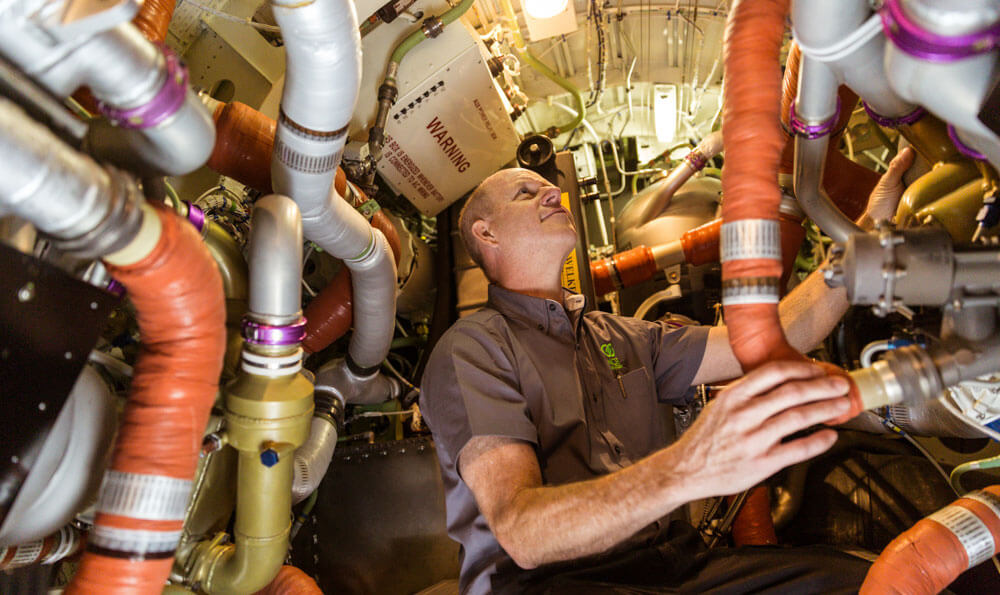
“Where we were flying internationally, Jeff explained to me that we were stretching the Challenger,” said Ledford. “He’s the expert in aviation, so his role is to educate me.”
Michael brought in a third-party consultant to forecast NCR’s future flight activity. “The way that the company was growing at the time, and the way we wanted to expand our business, we determined the best airplane for us to buy was the G550,” he said.
All Six Pilots Captains
In the process of moving its base, NCR built a 25,000-square-foot hangar on Cobb County International and equipped it for both aircraft types. They bought new lifts, jacks and tugs for the G550, also installing a fall-protection system on the hangar ceiling so technicians could work on top of the fuselage.
In a one-year period, we relocated our department, built a new hangar, acquired an airplane and hired three people – the four biggest things that can happen in business aviation.
Even with a second airplane and a new hangar, the company wasn’t ready to double its flight department staff. Michael was permitted to hire two more pilots and one technician with experience on the G550. He sent Maria Kozicki, NCR’s aviation coordinator, to cabin safety training so she could serve as a flight attendant when the G550 carried more than nine passengers.
Because of their long tenures, the aviation team had strong relationships with the passengers and wanted to avoid using contract personnel. So all six pilots are type-rated and keep current on both the Challenger 300 and the G550. They’re all captains on both aircraft, and duty schedules are updated frequently.
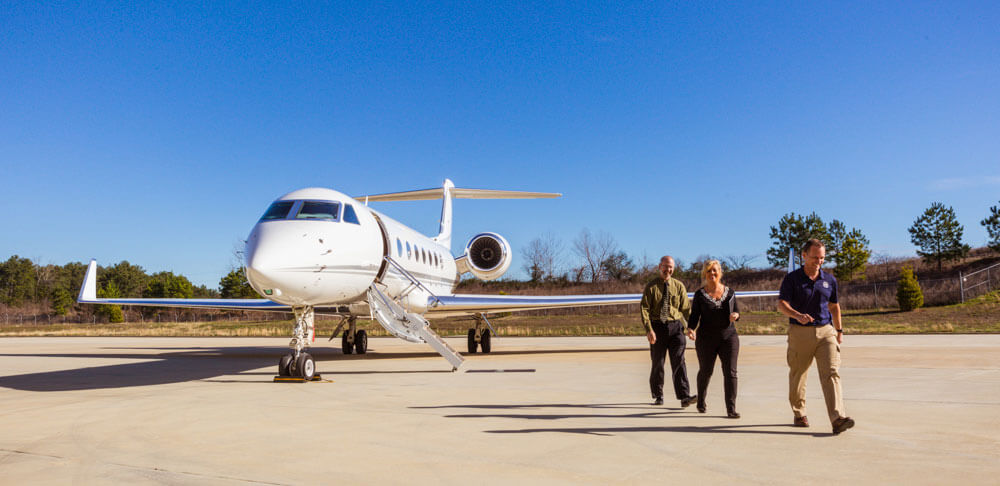
“In order to make a schedule like ours work, you really need eight pilots, or you need to get creative,” said Michael. “Hiring people with the passion and work ethic for the job was important, and also a challenge, because I know that on a moment’s notice I can call any of our pilots or mechanics or our dispatcher, and they’re going to be available to the company.”
To have a hard day off, the pilots and mechanics need to take a vacation day; otherwise, they’re available nights, weekends and holidays. That gives NCR the flexibility to dispatch a flight in the morning with a fresh crew, even if the airplane got back late the night before. Michael keeps track of everyone’s hours and rest periods.
“We’re a 24/7 operation, 365 days of the year,” said Krafka. “The way NCR does business has changed, and our flight mission changed with it. Instead of having six months’ notice for a trip, we’re lucky to get a couple days. We do the six-, 12-, 24- and 48- month inspections ourselves before we take the plane in [for service], so we sometimes schedule maintenance on weekends or at night.”
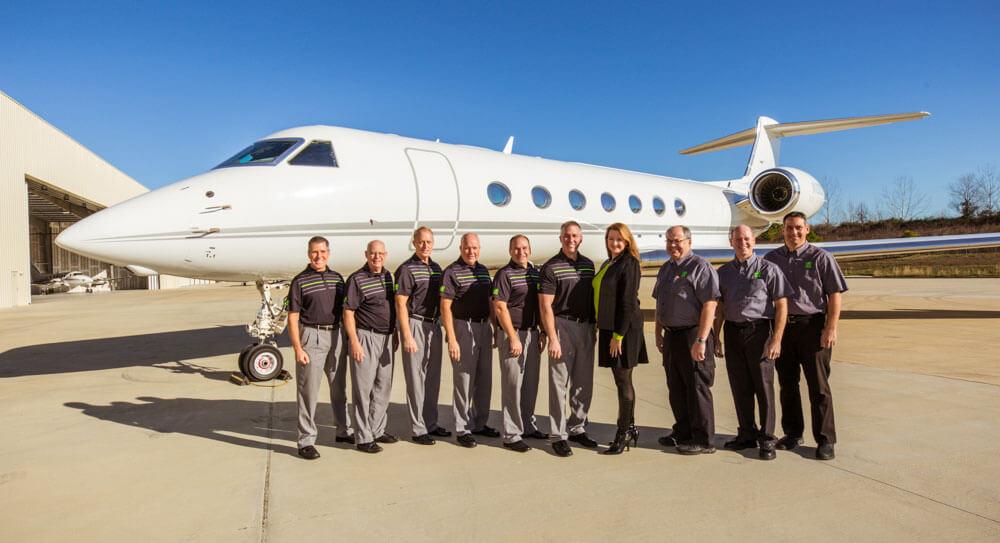
Staying True to Themselves
To build flexibility into their operation, and be able to pre-position crews for multi-stop international trips, Michael and Krafka needed to hire people who would back each other up. They hired Scott Thorpe, a G550 master technician “who was excited to learn the Challenger,” said Krafka. “He wanted to learn a new airplane. It was the same when I hired Chris [Carrion]. He didn’t have a lot of experience on turbine aircraft – only on piston planes – but it was his personality, his work ethic and his mechanical ability [that earned him the job]. I can teach someone how to work on a jet, but I can’t teach personality.”
The personal values they were looking for – passion for aviation, safety-mindedness and team camaraderie – have been part of NCR’s flight department culture for decades, which is part of why NCR earned NBAA’s 60-Year Flying Safety Award in 2014.
“You’ve got to have a company that supports safety from the top down, and NCR has been doing that for over 60 years of accident-free flying,” said international captain Doug Gerdes. “I think that speaks for itself.”
Learn more about NCR at www.ncr.com.
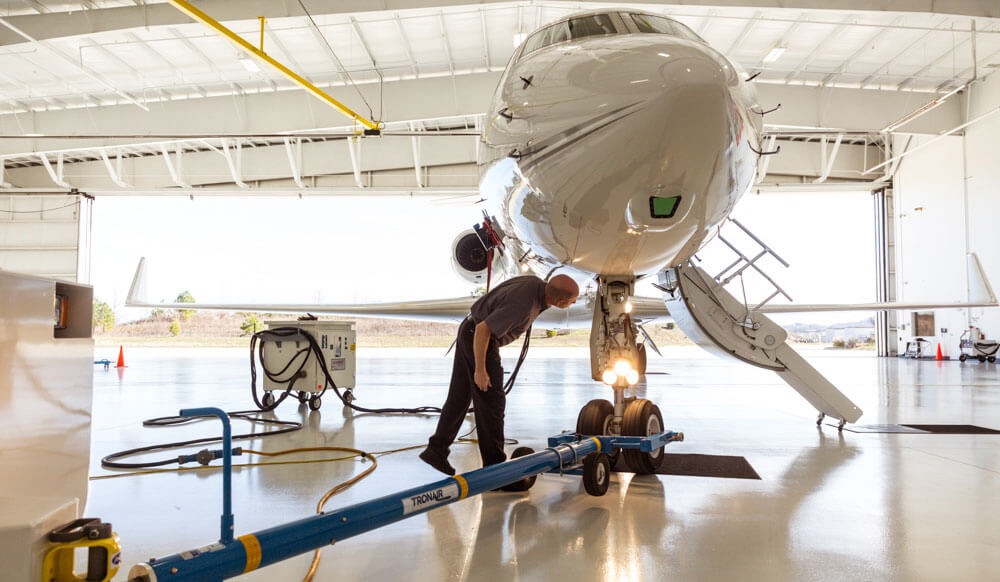
When NCR’s flight department relocated to Georgia, Director of Aviation Jeff Michael led a multi-year change-management process that included benchmarking with Atlanta-area operators. This helped NCR implement processes for operating a new aircraft type, moving into a new hangar and hiring local talent.
NCR joined the Southeast Aviation Safety Roundtable, a group of safety officers from operators in the region. Members sign a non-disclosure agreement, share an email discussion list and meet three times a year to address common safety issues.
Atlanta-area operators invited NCR’s chief of maintenance, Frank Krafka, to attend luncheons for maintenance directors at Fulton County Airport. The gatherings were invaluable when NCR acquired its G550, an airplane Krafka had never worked on. NCR staffers also have attended the Georgia Business Aviation Association’s Safety Day annually.
Steve Horvath, NCR’s safety officer, said, “If you don’t go to these seminars and roundtables, you can’t measure yourself against other flight departments. But if you get out there, you see what’s working for them and can bring ideas back to make yourself better.”


 International Business Aviation Council Ltd.
International Business Aviation Council Ltd.